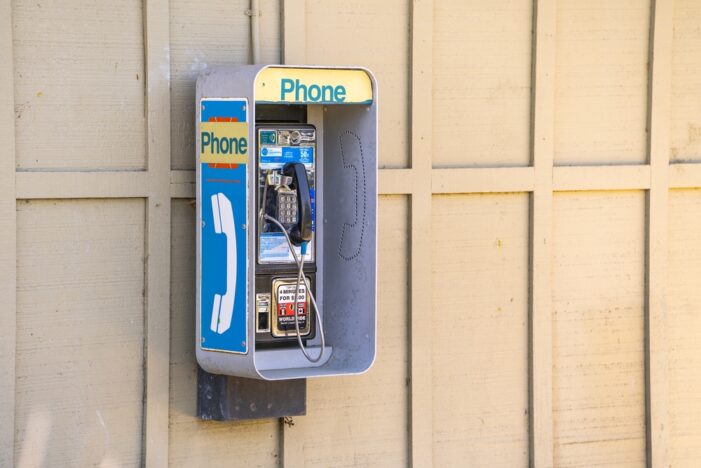The Biden administration is yet again turning to the Trump playbook as it tries to slap together a border crackdown to succeed the end of the Title 42 “public health” order next month. The latest revived Trump-era idea: keeping asylum seekers in Border Patrol custody for longer, and conducting asylum screening interviews in phone booths, so that those who fail the screening interview can be deported as quickly as possible.
The plan, which reportedly could be rolled out this week, is a successor to a pair of programs the Trump administration used in 2019 and early 2020. (They were suspended when Trump instituted the Title 42 order in March 2020, which used the COVID-19 pandemic as an excuse to expel migrants without allowing them to ask for asylum.) Known as the Prompt Asylum Claim Review (PACR) and the Humanitarian Asylum Review Process (HARP), both programs sought to deport certain asylum seekers within 10 days of their crossing into the U.S.
Instead of being turned over to U.S. Immigration and Customs Enforcement (ICE) for further processing within 72 hours of their arrival in the United States—per federal detention standards—they were kept in Border Patrol custody for several days. Asylum officers conducted “credible fear interviews” from phone booths in the Border Patrol facility—just as the Biden administration plans to do now.
Any policy designed to deport people as quickly as possible is going to be secretive and opaque, with little opportunity for public observation or accountability. It took until early 2021 for the Department of Homeland Security’s Office of the Inspector General to release a report on the Trump-era PACR and HARP programs. Its findings were damning: DHS had expanded these programs without assessing whether or how they were actually working, and that the programs had restricted immigrants’ legal rights while forcing DHS to routinely violate its own detention standards.
The OIG report confirmed that there were two fundamental problems with the phone-booth model. On one hand, any move to rush people through the asylum process risks violating their due process rights – and, ultimately, deporting people back to countries where they will be persecuted, was breaking U.S. and international law. While the Biden administration has stressed that migrants in the new program will be allowed to seek legal representation, it’s not clear how they would access attorneys – lawyers and other members of the public aren’t allowed to set foot in Border Patrol facilities—or when (and where) they would consult with them before an interview. And it’s easy to imagine that a single phone interview from a poorly-insulated phone booth in a Border Patrol holding center—or a venue with even less privacy—might not be adequate to judge the merits of an asylum claim.
At the same time, the phone-booth model ends up keeping asylum seekers in Border Patrol custody for longer than the normal process would. PACR and HARP were supposed to process asylum seekers within seven to 10 days, compared to the 72-hour standard in federal detention guidance. And often, asylum seekers in the PACR and HARP programs ended up in Border Patrol custody for even longer. The Government Accountability Office found that on average, PACR and HARP held asylum seekers in Border Patrol custody for 13 days. During a site visit in El Paso, the inspector general’s office found that the overwhelming majority of asylum-seekers in PACR and HARP—including families with children—were being held longer than 72 hours, and over a quarter had been held for more than one week.
Border Patrol facilities are dangerous places to hold large numbers of migrants. Under the Trump administration, several young children died in Border Patrol custody due to inadequate medical care; in 2019, horrendously overcrowded facilities led to asylum-seekers being denied basic hygiene needs.
The Biden administration’s secretive rollout of the new program raises more questions than answers. For one thing, it’s not clear who exactly is going to be subjected to phone-booth asylum screenings—and whether it will include families (as the Trump-era programs did) in addition to single adults. For another, it’s not clear how it will interact with the regulation that the Biden administration is expected to finalize before Title 42 ends, which would bar asylum to any immigrant caught by a Border Patrol agent who traveled through another country en route to the U.S. without applying for (and being denied) asylum there.
That secrecy undermines any effort to expand access to attorneys—after all, lawyers can hardly represent immigrants in a program they don’t even know is underway. And just like the first iterations of PACR and HARP, it raises the concern that abuses won’t be discovered until it is far too late.
The biggest question, though, is why the Biden administration is doing this at all.
The Trump-administration programs put migrants at risk both by keeping them in dangerous conditions in the U.S. and increasing the likelihood that they would be deported to danger at home. Conversely, it’s not clear that they had any upside: even by the cruel logic of border deterrence, by which increased suffering of asylum seekers is justified if fewer migrants come in future, there’s no evidence that phone-booth asylum had any effect on apprehensions or that the government even tried to measure whether it did.
The Biden administration’s plans for the end of Title 42—a Trump policy it extended well into its third year—are, so far, to reanimate older Trump border policies: the planned asylum transit ban; rumors of family detention; and now these. The impression it’s leaving is that it is more afraid of asylum seekers arriving in the U.S., and immigration hawks fearmongering about a “border crisis,” than it is of violating human rights and American values. As a candidate and a president, Biden has purported to reject the Trump approach to asylum and the border. But it’s increasingly unclear whether any actual lessons have been learned.

